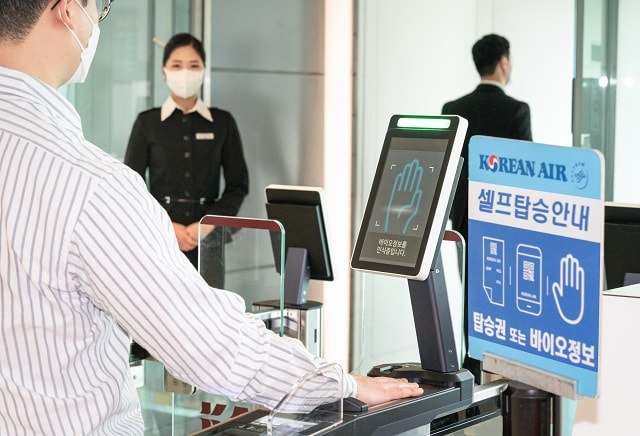Has the future of travel arrived? If it depends on Korean Air, we will no longer be needing our boarding pass in the future. As of 8 February, the company has adopted adopts palm vein verification for a number of domestic flights departing from Gimpo International Airport. In order to do so, any Korean citizen older than seven will be able to register their biometric information at the Korean Air kiosks throughout Gimpo International Airport. They will need to present an ID card and provide consent to the use of their personal information.
One might wonder why Korean Air is introducing the new technological function yet according to the airline, the palm vein scan “is expected to increase efficiency and strengthen security of the identity verification process, and significantly reduce flight boarding times.” The flight personnel will no longer have to control a print version of the boarding pass and, moreover, the palm vein information is strictly personal so it can’t be lost nor stolen. It is said to be more accurate than palm print scanning as one’s palm vein pattern stays the same even as they age. And for those who wonder about Covid-19 safety: it’s not necessary to touch the scanner with your hand for it to be scanned. Just hovering above should suffice.

What the future might bring
As said, the biometric self-boarding will be rolled out at Gimpo International Airport for a number of domestic flights. By the end of the year, Korean Air wishes to expand the service to all domestic route departure gates at Gimpo Airport. By August 2022, the service should also be available at Busan Gimhae Airport and the airline wants to add the feature to international flights too in the future. For the launch of the feature, Korean Air has been working closely together with Korea Airports Corporation.
However, it’s not Korean Air’s first experience with introducing biometric information-based technologies. They already offer facial recognition services provided by overseas airports authorities in Atlanta, Los Angeles, New York and Singapore. The use of an integrated identification initiative using passengers’ biometric information to achieve interoperable system coordination between airports, airlines and governments around the world is at the core of International Air Transport Association’s (IATA) One ID initiative.













